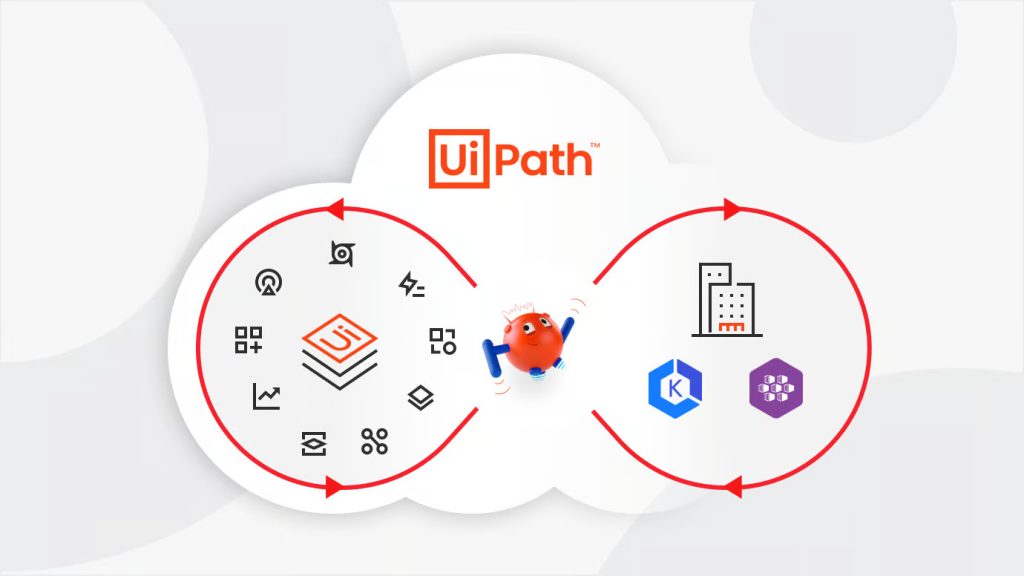UiPath, a prominent US robotic automation software company, has announced a substantial investment of $35.2 million in Holistic, a nascent Paris-based AI startup. This investment, part of Holistic’s initial seed round that has reportedly raised a staggering $200 million, underscores UiPath’s commitment to integrating cutting-edge AI capabilities into its automation solutions.
Founded earlier this year by a team of illustrious tech veterans, including Karl Tuyls, Laurent Sifre, Julien Perolat from Google DeepMind, and Charles Kantor from Stanford University, Holistic is pioneering the development of “multi-agent AI” systems. This innovative approach involves building AI systems composed of multiple interactive “agents” capable of collaborating to achieve complex goals within a designated environment.
According to researchers, this multi-agent architecture could enable AI systems with enhanced performance, flexibility, and the ability to solve intricate problems that existing models struggle with. Holistic’s unique proposition has already garnered significant attention from industry giants, even at this early stage of its development.

The substantial seed round, reported to be led by prominent venture capital firm Accel, has propelled Holistic’s valuation to an impressive $370 million, comprising $80 million in equity investment and $120 million in convertible bonds. Convertible bonds are a form of debt financing that can be converted into equity after specific conditions are met, providing Holistic with a flexible financing structure to fuel its growth.
UiPath’s investment in Holistic, a sizeable portion of which is allocated to convertible bonds, signifies more than just a financial commitment. The robotic automation software company, headquartered in New York, has explicitly stated its intention to establish a “commercial relationship” with the French AI startup, as outlined in a filing with the US Securities and Exchange Commission (SEC).
This strategic partnership could prove to be a game-changer for UiPath, which has already begun integrating AI technologies into its robotic process automation (RPA) solutions. By leveraging Holistic’s multi-agent AI capabilities, UiPath may be able to expand the scope of its RPA offerings, enabling processes such as document comprehension, natural language processing, and intelligent decision-making.
“The integration of Holistic’s multi-agent AI systems could revolutionize the way we approach automation,” remarked a UiPath spokesperson. “By combining the power of collaborative AI agents with our existing RPA technology, we envision a future where businesses can streamline complex processes with unprecedented efficiency and adaptability.”

While both UiPath and Holistic have remained tight-lipped regarding the specific details of their partnership, industry analysts are speculating on the potential synergies between the two companies. Some experts suggest that Holistic’s multi-agent AI could be integrated into UiPath’s RPA platform, enabling enterprises to automate intricate tasks that previously required human intervention.
“Multi-agent AI systems have the potential to tackle complex problems by breaking them down into smaller, manageable tasks and coordinating the efforts of multiple specialized agents,” explained Dr. Emily Rhodes, an AI researcher at MIT. “This distributed approach could lead to more robust and scalable automation solutions, capable of adapting to dynamic environments and handling unexpected situations.”
However, not all industry observers are convinced of the immediate impact of this partnership. Skeptics argue that multi-agent AI, while promising, is still in its infancy, and integrating it with existing RPA systems may pose significant technical challenges.
“While the concept of multi-agent AI is intriguing, it’s important to manage expectations,” cautioned Dr. Jacob Klein, a leading AI expert at Stanford University. “Translating theoretical models into practical, enterprise-grade solutions is a complex endeavor that often takes years of refinement and testing.”
Regardless of the potential hurdles, UiPath’s investment in Holistic has undoubtedly ignited a wave of excitement within the AI and automation communities. As the race to develop and commercialize advanced AI technologies intensifies, collaborations between established players and innovative startups are becoming increasingly common.
“This partnership between UiPath and Holistic is a testament to the growing recognition of AI’s transformative potential across industries,” noted Dr. Sarah Johnson, a venture capitalist specializing in AI investments. “By combining UiPath’s domain expertise in automation with Holistic’s cutting-edge AI research, they may be able to create solutions that redefine the boundaries of what’s possible.”
As the dust settles on this landmark deal, industry watchers eagerly await the unveiling of the first collaborative offerings from UiPath and Holistic. The success or failure of this partnership could have far-reaching implications for the adoption of AI-driven automation solutions across various sectors, shaping the future of work and productivity for years to come.

In the rapidly evolving landscape of AI and automation, UiPath’s investment in Holistic represents a bold bet on the transformative potential of multi-agent AI systems. By integrating this innovative technology with its existing RPA solutions, UiPath aims to unlock new realms of efficiency, adaptability, and intelligent process automation. As the details of this strategic partnership unfold, businesses and industry analysts alike will be closely monitoring the outcomes, eager to witness the impact of this collaboration on the future of work.
Copyright©dhaka.ai
tags: Artificial Intelligence, Ai, Dhaka Ai, Ai In Bangladesh, Ai In Dhaka, Google, Claude, Future of AI, UiPath



